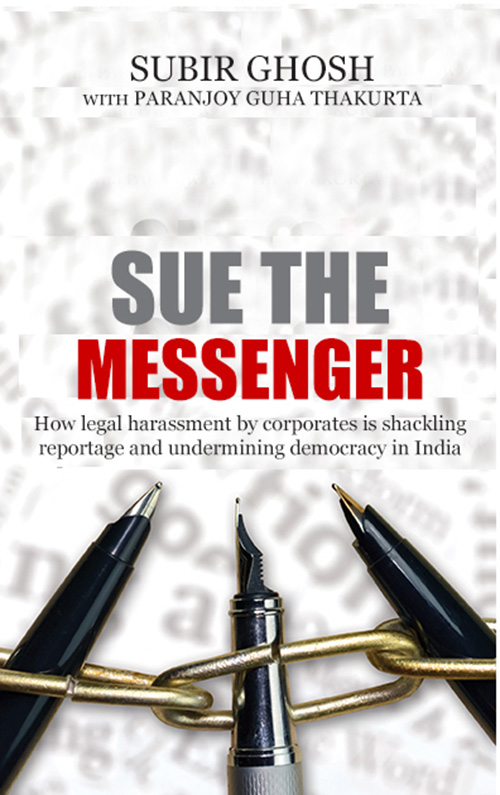The term ‘fourth estate’, often used to describe the media, was reportedly coined by the Irish political philosopher Edmund Burke in a debate in the British House of Commons in 1787. Using the term to describe reporters who sat in a gallery, he argued that the press was “far more important” than the three other “estates”, namely, the clergy, the nobility and the commoners. The independence of the media, which is meant to ensure checks and balances in the working of other institutions of the state, has been considered indispensable to a functioning democracy.
Even as journalists are expected to act as the proverbial watchdogs of society and hold accountable those in positions of power and authority, they are themselves meant to be accountable to the public at large. Journalists are supposed to provide accurate and authentic information, besides disseminating a variety of opinions. One of the rights that journalists can lay claim to is security of employment, somewhat like the claims made by government officials. Such rights were supposed to also include well-defined conditions of work and remuneration structures as determined by a government-mandated wage board – at least, that was how it was supposed to be in India.
However, employers of journalists in the world’s largest democracy found ways to circumvent the terms imposed by wage boards which granted various rights to working journalists as well as other employees of companies that publish newspapers. Over the years, companies like Bennett, Coleman & Company Limited (BCCL), one of Asia’s biggest publishers – including of the Times of India, the world’s most widely circulated multi-edition English-language daily newspaper – gave journalists and other employees substantially higher salaries and perquisites in comparison to those mandated by the wage board. This was provided they agreed to work on the basis of short-term contracts (that could last for a few months to a few years) without guarantees of secure employment.
Six wage boards for journalists have been set up in India since 1955. The most recent wage board, the sixth one, was constituted in 2007. It submitted its recommendations in December 2010 which were accepted by the Indian government in 2011. This decision was legally sought to be challenged by owners of newspapers, but in February 2014 the Supreme Court upheld the government’s position. Awards by all wage boards in the past have been opposed by associations of publishers and owners of newspaper companies. A few of these companies, which are family-dominated and highly profitable, bring out some of the most widely circulated newspapers not only in the country but in the world as well.
Implementing the wage board’s recommendations, including payment of arrears, has impacted the finances of media companies. For instance, the Chennai-based Kasturi & Sons Ltd, publisher of the Hindu newspaper, has been offering incentives to its employees to shift to a contract-based system of compensation. Once considered to be among the most paternalistic newspaper organisations in India with a deserved reputation of looking after its employees, including by paying them salaries and healthcare costs as per the wage board, Kasturi & Sons, for the first time in its history, incurred a loss of INR 65 crore (USD 10 million), on a turnover in excess of INR 1000 crore (USD 160 million) during the financial year that ended on 31 March 2014. The newspaper has been published continuously since 1878.
A former editor of the Indian Express, Shekhar Gupta, recently espoused the virtues of the contractual system – an arrangement that also makes journalists prone to be ‘hired and fired’. In a December 2014 interview with the Scroll.in, he remarked that he is bothered by the “value judgement within the media that journalists shouldn’t be paid so much.”
The publishers of the Bengali-language daily Ananda Bazar Patrika and the English-language Telegraph demanded that the constitution of the wage board and the 1955 Working Journalists Act be declared illegal, null and void.
Over the last few years, especially since the 2008 Great Recession in the West and an economic slowdown in the East, two phenomena have combined to put huge pressures on the working of traditional mass-media organisations: first, the cutbacks in expenditure on advertising and the second, the phenomenal growth of the digital media with huge volumes of “free” written and audio-visual content. The disruption in the revenue models of media organisations have adversely affected the ways in which the gathering and dissemination of news and information are funded. This, in turn, has also had a negative impact on salary structures and the security of tenures of all media personnel, and in particular, journalists.
In 1955, the government of India enacted the Working Journalists and Other Newspaper Employees (Conditions of Service) and Miscellaneous Provisions Act to regulate the conditions of service of working journalists. In 1974, the act was amended to include other employees of newspaper establishments. In order to fix the wages of employees in newspaper companies, the Union government was empowered to constitute two wage boards – one for working journalists and the other for the rest of the employees.
At the heart of the system was a committee, comprising three newspaper employees, three representatives from newspaper establishments and four independent members, including a serving or retired judge of a high court or the Supreme Court. Since 1955, while six wage boards have been constituted for working journalists, four have been set up for other employees of the newspapers. On 24 May 2007, the sixth cycle – comprising two wage boards, one each for working journalists and non-journalists – was completed. The boards were first chaired by Justice Narayana Kurup, who was succeeded in March 2009 by Justice Gurbax Rai Majithia, a retired judge of the Bombay High Court.
The Majithia wage board suggested various important social-security measures which went beyond the mandated revision of the wage structure. These included post-retirement benefits, a forward-looking promotion policy, paternity leave for male employees, a retirement age of 65 years, a pension scheme, allowances for night-shifts, hardship, transport and house rent, a tribunal to adjudicate on complaints regarding non-implementation or circumvention of the wage board’s awards, and equal salary for contractual workers and regular employees where the same work is performed. The wage board also announced an “interim relief” of 30 percent of basic pay for employees, with effect from January 2008, and recommended an overall increase in salaries, with a provision for payment of past arrears.
In May 2011, the Kolkata-based ABP Limited, publishers of the Bengali-language daily Ananda Bazar Patrika and the English-language Telegraph, filed a petition challenging the recommendations of the Majithia wage board as well as the legislation under which it had been constituted. These were subsequently followed by petitions from other media groups, including BCCL and the news agency United News of India (UNI). The Indian Newspaper Society (INS), which represents over 1000 small, medium and large publishers, tried to stall the implementation of the recommendations of the wage board. The society put out advertisements in major newspapers saying that the recommendations were arbitrary. In a rather derogatory tone, it contended that if the recommendations were accepted, a lowly peon would be paid up to INR 45,000 (USD 700) a month and a driver up to INR 50,000 (USD 800).
The petitioners demanded that the constitution of the wage board and the 1955 Working Journalists Act be declared illegal, null and void, arguing that it was ultra vires to the Constitution of India. They also urged the apex court to grant an injunction restraining the Union government and others from giving effect to the award and the recommendations made therein. One of the main arguments made in the writ petition was that the act and the wage board’s recommendations were tantamount to a violation of Article 19(1)(a) of the Constitution which guarantees every citizen of India freedom of speech and expression. It was contended that this fundamental right was not merely restricted to the freedom to write and publish whatever an author deemed proper, but also included the freedom to carry on the business of the press without onerous and prohibitive restrictions. The petition also argued that the 1955 Act was a gross violation of the right to run a business, which was also a basic fundamental right guaranteed by the Constitution.
It was pointed out that all wage boards applicable to employees in other industries – cotton, sugar, tea, coffee, rubber, cement, jute – had been abolished over a period of time, the last one being the one for sugar in 1989. The petition also emphasised that in 2002, the National Commission on Labour had unequivocally recommended that “there was no need for a wage board to be constituted for any industry.” Given that the practice of setting up wage boards in other industries had long been discontinued, it was felt that employers and trade unions had achieved sufficient maturity to bilaterally decide issues regarding wage fixation. There were no wage boards in other media sectors like television, radio and the internet. The petition argued, “In an era of globalization and liberalization, to shackle one part of the industry with regulations is unreasonable, unfair and arbitrary…”
This article is from the web-exclusive series from our latest quarterly issue ‘Labour and its Discontents‘ (March 2015).


